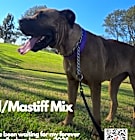Although they can adapt to apartment living under the right conditions, Borzoi are not good apartment dogs in general. Borzoi are large dogs who require ample space to move around comfortably, and an apartment might not provide the space they need to stretch out and relax. Despite their calm and laid-back demeanor indoors, Borzoi are active and energetic dogs who need daily opportunities to run and play in a fenced-in yard or a safe, enclosed area. Additionally, Borzoi can be sensitive to noise and might become anxious or stressed in noisy or chaotic environments commonly found in apartment buildings.
If you are considering keeping a Borzoi in an apartment, it’s essential to provide plenty of opportunities for daily exercise, mental stimulation, and outdoor activities in safe environments. Regular walks, trips to the dog park, and interactive play sessions can help meet their physical and mental needs.











